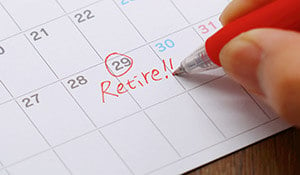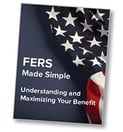The Best Dates to Retire from FERS in 2025
March 24th, 2021 | 2 min. read

A common question federal employees ask us is this: I have heard there are “best” days of the year to retire from FERS – is this true? The answer is indeed, yes. In fact, the date you retire from FERS can carry significant importance based on your cash flow needs.
Here’s why:
Once you retire as a FERS employee, your retirement date becomes the first of the following month. Your first FERS annuity check then will be sent to you on the first day of the following month after retirement.
For example, let’s say you retired on February 14. Your annuity retirement date would be March 1 and your first FERS annuity check would arrive on April 1.
To complicate matters just a little more, when your first check does come, it will only cover between 40- 90% of your full annuity check as the government reviews and verifies your employment record. The full payments should start shortly thereafter. For more details on how your FERS benefit is calculated, I suggest reading this post.
For most government employees used to getting paid twice a month, that gap can be a little rough to navigate. The good news is the government will send you a cash payout of unused annual leave within 30 days of your retirement. Most retirees use this to pay bills and expenses during the gap between their last working check and their first full annuity check.
So, what can you do about this gap? We recommend two simple tricks:
- First, it makes sense to try to get the most annual leave accrued possible before retiring. To acquire the maximum leave from your very last pay period, you need to retire on the last day of the period – usually the second Saturday. Simple, right?
- Second, it makes sense to reduce the time of the gap between your last paycheck and first annuity paycheck. Another simple solution: retire towards the end of the month, which will cut this time down to 4-5 weeks, instead of 7-8 weeks if you retire early in the month.
Now, you can merge these two simple strategies and retire at the end of a pay period that finishes towards the back of the month.
That means the last day of the month is always a good day to retire, but there are some days that are even better because they allow FERS employees to max out annual leave, which they will receive as a lump-sum cash payment along with their sick time, which will be added to their pension time.
December 31 is always a great date because it creates a clean start for the following year from a financial perspective and allows for maxing out of annual leave and sick time.
These are the best dates for federal employees to retire in 2025:
- January 11
- May 31
- October 31
- December 31
Again, the reason for retiring within the last three days of the month is that it also allows a FERS employee retiring to receive their first pension check as quickly as possible. Historically, that can take anywhere from 4-5 weeks but can vary depending on the time of year you retire.
What is your date? Let us know!
If you don't know, then it may be a good time to get a retirement plan. Check out our retirement planning services here to learn how we can help you.
If you have any questions, want to plan a retirement date in the next few years, or would like some guidance on what this means for you, please click this link to schedule a free FERS consultation – we would love to help you.
Also, you can learn more about federal retirement benefits by downloading our free, easy-to-understand guidebook, FERS Made Simple: Understanding and Maximizing Your Benefit.
As a financial adviser, Kurt takes a comprehensive approach to help clients work toward their financial goals by providing wealth management tools including retirement planning, investment portfolio advice and tax strategies. He specializes in federal government benefits and is a Chartered Retirement Planning Counselor.


